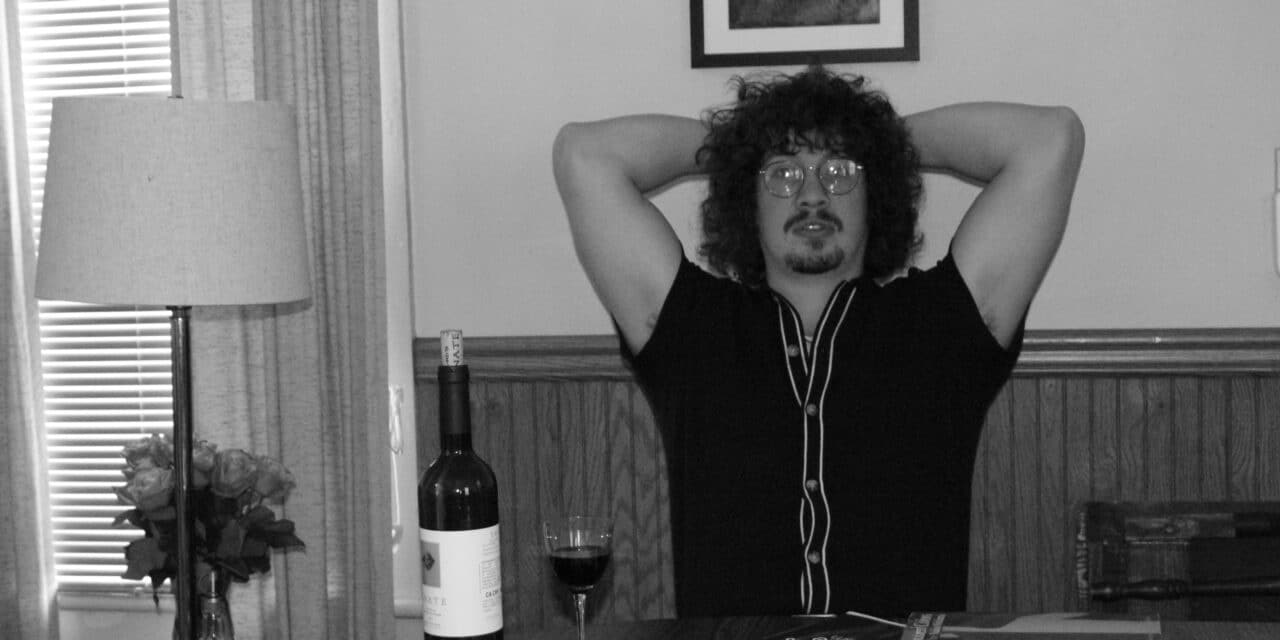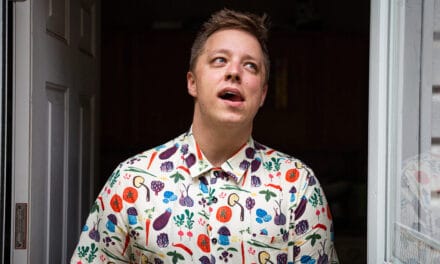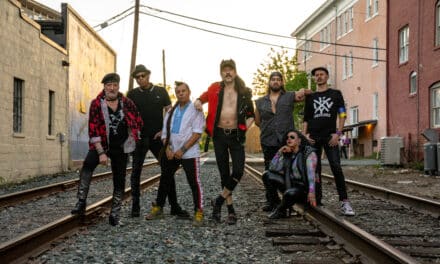There’s a particular kind of quiet that only exists in the Midwest—wide fields that hum with summer heat, the drone of distant machinery, the kind of stillness that makes you reflect on every wrong turn that led you there. Trevor Sensor knows that quiet well. The Illinois-born singer-songwriter, with his weathered Dylan-esque rasp and heartland melancholy, returns with “The Farm,” the first single from his upcoming album A Few Tears of Eros (out August 8 via High Black Desert Records).
Sensor’s new track feels like the musical equivalent of staring across a field at dusk, thinking about all the times you followed a dream too far. Bluesy and raw, “The Farm” builds on his signature folk-rock grit with a bar-burning guitar solo that lets all that ambient frustration and yearning break loose. It’s a song steeped in toil and the stark beauty of isolation.
“The song came to me while I was working in a field,” Sensor recalls. “It was mid-summer, the sun was hot, and I’d been digging holes since morning. I looked around and thought, ‘How’d I end up on the farm?’ I’d probably made a couple wrong turns way back when… Nevertheless, here I was, and still am.”
The accompanying video, shot by longtime friend Ryan Ohm, doesn’t romanticize the rural backdrop. Instead, it leans into its desolation—Sensor, a solitary figure, dwarfed by empty landscapes and unflinching reality. There’s no polished nostalgia here, just an acknowledgment of “the meanness of plebeian existence,” as Sensor calls it, and a rare glimmer of hope flickering somewhere in the margins.
A Few Tears of Eros promises to push deeper into that tension, exploring modern love and disconnection in an atomized world. It’s Sensor’s first album in four years, following the introspective On Account of Exile Vol. 1 & 2 (2021), and it reads like the journal of someone who’s chased a dream across empty highways and found meaning in the miles.
“The Farm” isn’t just a single—it’s a dispatch from the edges of the American dream, dirt under its fingernails, staring into the horizon.
This album explores “modern love in a dejected and atomized world.” What inspired you to dive into this particular emotional and cultural territory now?
I didn’t go to the theme, the theme came to me. It bombards us every day – sex is everywhere. In America, love has been lowered to a casual transaction based on what “value” someone brings to the table. A “high value man”, a “high value woman” – these are dehumanizing terms. We’re not seeing each other as people with thoughts, feelings, memories, and agency but rather objects of our desire and fantasy. Romantic partners are now means to lifestyle ideals instead of ends in themselves – decorations in the online presentations of our personal brand, status symbols, or the golden ticket to affluence. This isn’t a pagan liberation from the constraints of religious oppression, it’s something far more banal and sad. We are Huxley’s children, but not even that. We’re a nation of solipsistic masturbators.
You mention being drawn to the ‘in-between’ moments of love rather than the beginning or the end. Can you give us an example from the album where this theme is especially clear?
Songs like “Trampin'”, “This Is a Dark Matter”, “Keepin’ By Your Door”, or “New York Mourning” are probably the most explicit when it comes to the “in-between” moments. That’s all I can really say about it. It’s up to the audience to work with the puzzle pieces I’ve given and draw their own conclusions.
Your lyricism has always been evocative and challenging—how did your writing process evolve for A Few Tears of Eros, compared to On Account of Exile or Andy Warhol’s Dream?
How songs come to be written is still a mystery to me, and I prefer to keep it that way. I can say my influences expanded throughout the writing of this album to new territories, I can say my spiritual state was in a different place than when writing the Exile records or Andy, but what possessed me to go the new directions I’ve gone is beyond my comprehension. I got older – I’m not even the same guy who wrote this album anymore.
There’s a tension between romantic idealism and emotional disillusionment in your new work. How do you balance vulnerability with critique in your songs?
Again, this isn’t something I consciously do. The words come, I write them down – I don’t do second or third drafts when writing. Recording is another matter, but when it comes to writing I just wait for the songs to come. I read a lot of Yukio Mishima and Georges Bataille a few years back when these songs were in gestation – maybe that’s got something to do with how they came out.
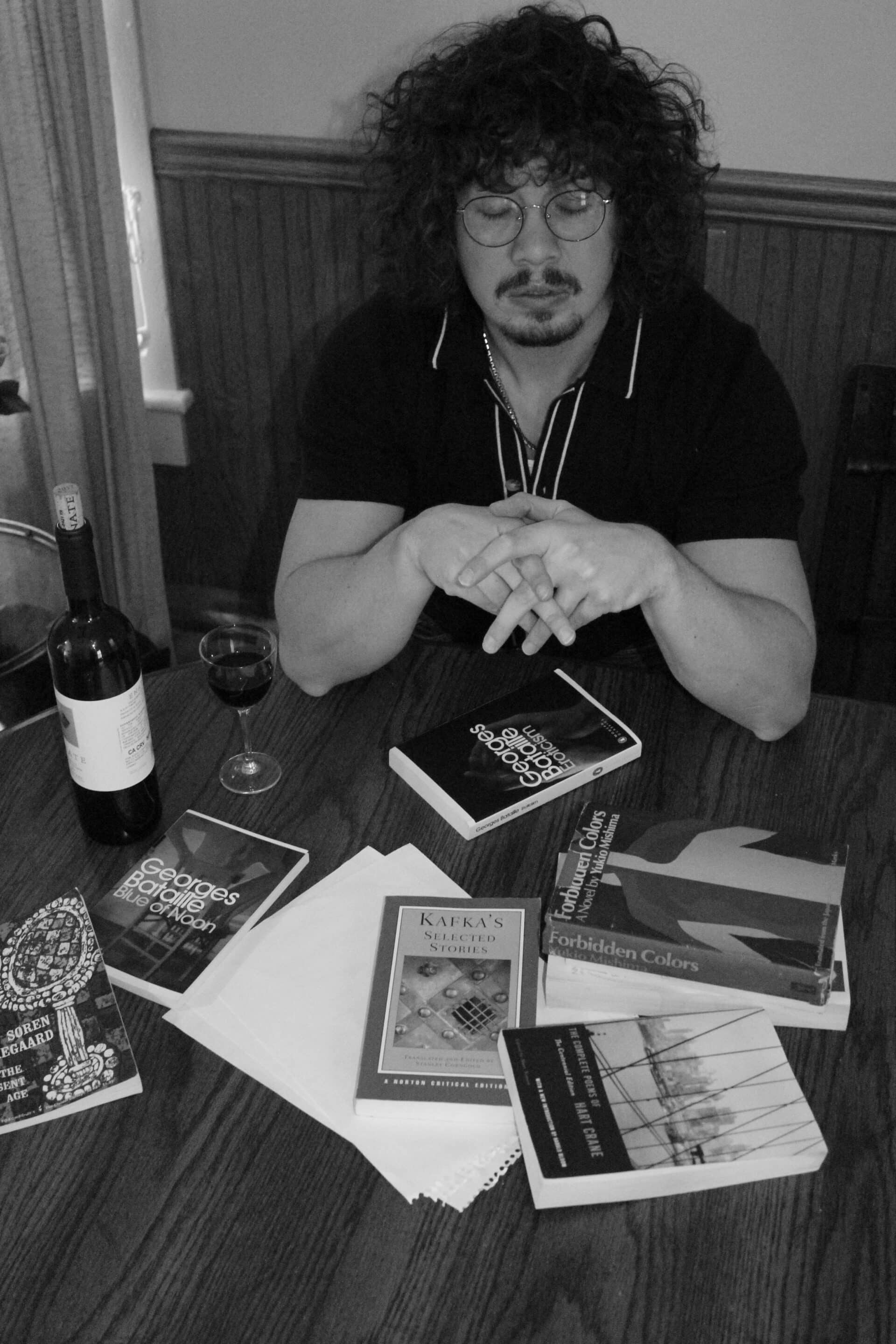
The title A Few Tears of Eros is striking—both poetic and melancholic. What does ‘Eros’ mean to you in the context of this record?
Eros is the force of life that drives us to do things. It’s the catalyst to all our ills in many ways. Thomas Glahn in the novel Pan is at peace living in the woods with his dog Aesop until a love interest becomes his sole obsession and drives him to madness. Huey Lewis says, “The power of love is a curious thing, make a one man weep and another man sing” – ain’t that true? Pascal says all of mankind’s problems stem from being unable to sit alone in a room with their own thoughts. If only we were all Fernando Pessoa! But that natural plight has become much darker in America thanks to the internet totally changing how we relate to each other. Can anyone of Millenial or Gen Z ilk imagine the intensity of making love on a hill at Woodstock in 1969, totally consumed by the moment and the person they’re with? I think not. We’re all so doped out, over-stimulated, and self-obsessed that the Silicon Valley wet dream of everybody living in pods is no doubt our national fate.
Sonically, you’ve moved through folk, rock, and touches of punk. What does this new album sound like, and did you approach instrumentation differently this time around?
We recorded this album in more “piece by piece” fashion. Very different from my past records, which were recorded mostly live. I let the songs speak to me on what they need and try not to dictate too much. I just knew I wanted this record to sound “romantic” in some way. I’m not sure I pulled that off.
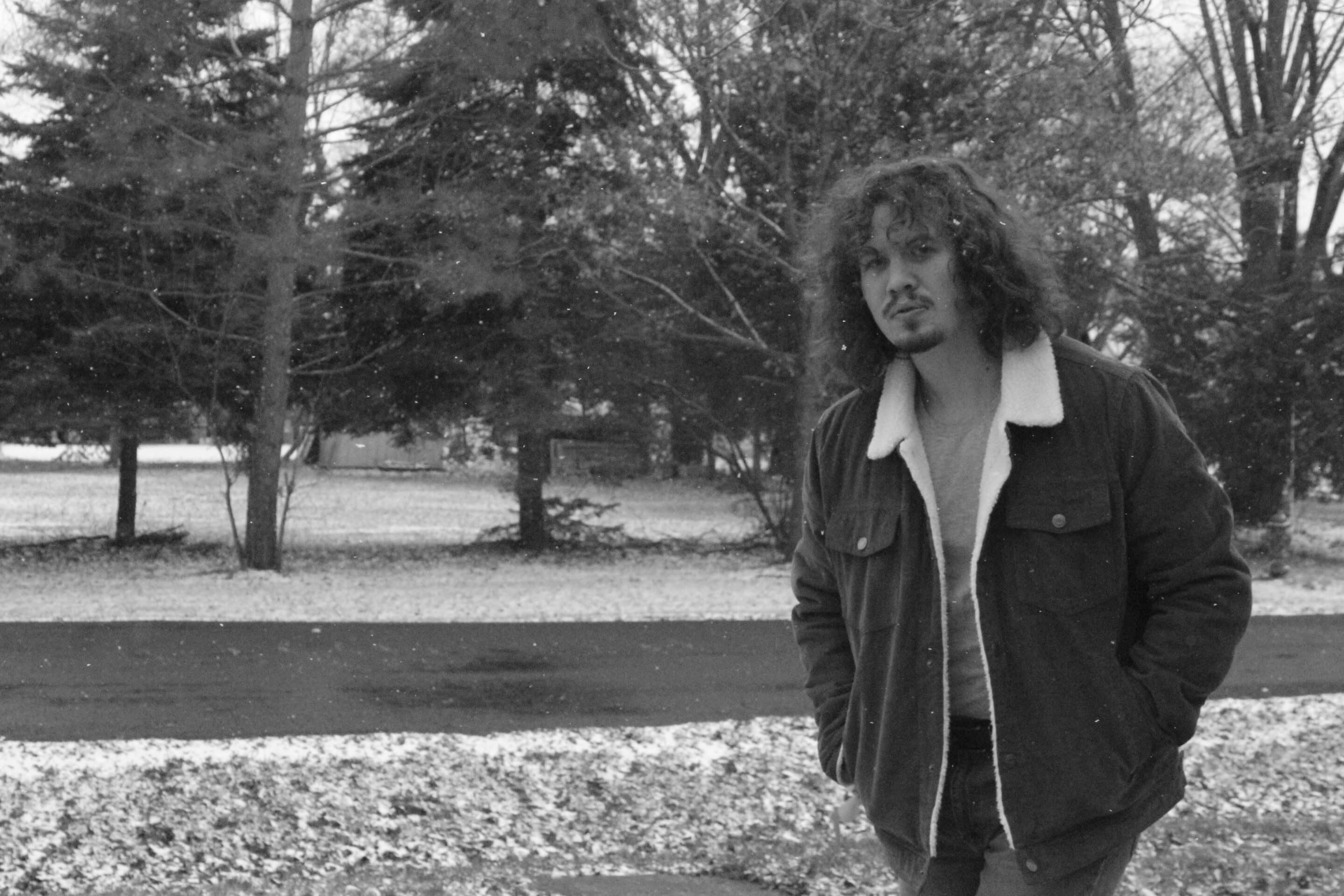
There’s mention of a “bar-burning guitar solo” and “ambient tension” in early reviews—did you feel a different kind of emotional urgency while recording this album?
Well, I needed to get something out. No record I’ve made has ever healed me. There’s a build up of tar that gets in my soul and I’ve just got to pry it out or vomit it up before it gets too late. Perhaps I was much more careful this time. Perhaps I had a clearer vision of what I wanted to do. Or maybe I subconsciously made it up as I went along. I just try to do it a little bit better each time than the last.
You’ve taken a four-year break before this release. What changed for you—personally or artistically—during that hiatus?
I’ve changed so many times it’s hard to remember who I ever was. I couldn’t tell you who I am right now.
As a Midwestern songwriter, how does place—particularly Illinois or the broader Midwest—shape your musical and lyrical identity on this new record?
The Midwest feels like a good vantage point to observe the whole nation. The sky stretches forever in some places like the Dakotas, or Nebraska, to a point where you could see LA or Key West on the horizon if you squint hard enough. “Fly Over Country” probably understands best that there’s nothing to be gained in this life. Our lot is to work, struggle, and die – there is nothing new under the sun. The urbanites chase shadows – they believe in utopian visions – they place their hopes upon fallible leaders and political philosophies that don’t accept the basic principle of the human condition. We are all very stupid and very wicked people, all of our efforts will end up as botches. But the downside is there’s no culture to be heard of in these parts. I know maybe two people who read Hart Crane, St. Augustine of Hippo, Simone Weil, Kierkegaard, or even Murakami or Melville. My love of jazz is an eccentric character trait to colleagues at whatever job I’m working at the time. You can’t talk about current events without somebody having an emotional collapse at the slightest disagreement. So on and so forth. I’ve always thought that I actually don’t belong in America and felt more at home with the Europeans when I spent some time there. That doesn’t appear to be my destiny though.
What do you hope listeners walk away with after hearing A Few Tears of Eros? Is there a particular message or emotion you’re hoping to leave lingering?
I want listeners to feel exulted.

